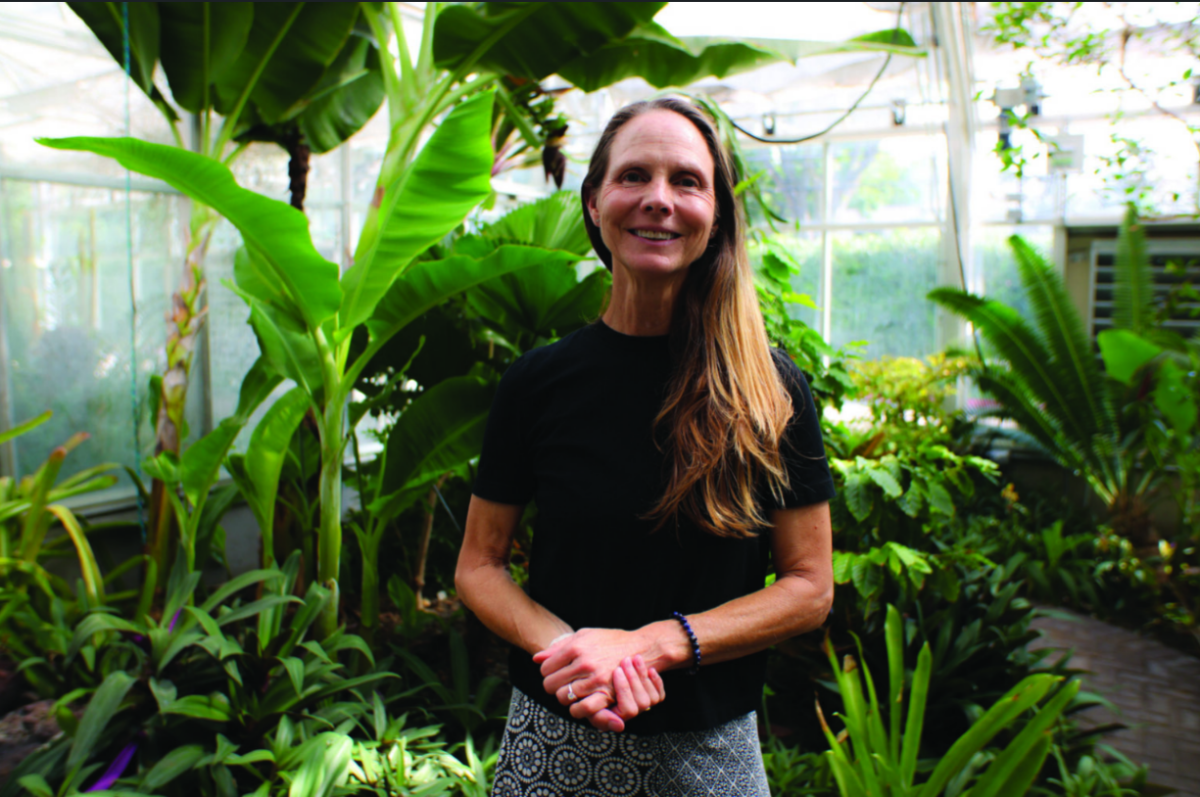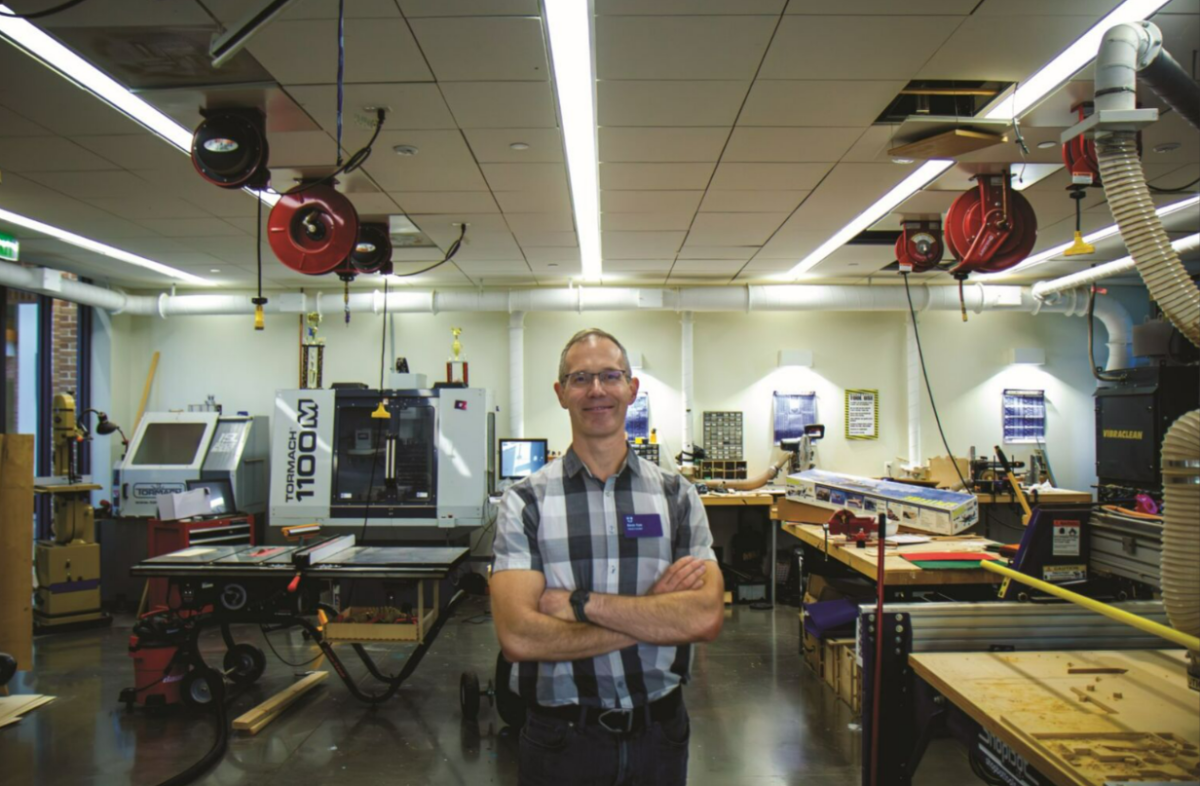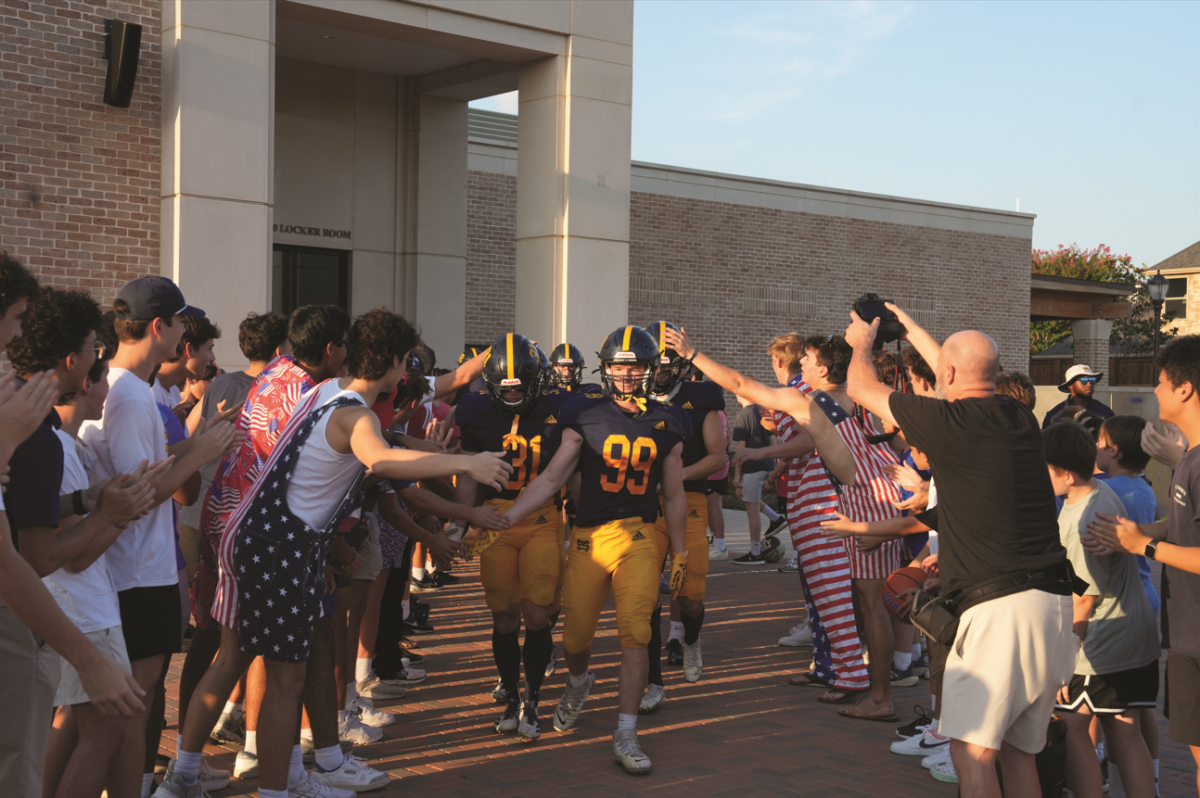For some students, it’s smooth sailing.
To others, it’s a nightmare.
Hours spent sitting at desks, watching review videos and shuffling through piles of notes all in preparation to face the culmination of their school year.
Final exams.
The time to cap off an impressive year-long academic performance or to learn from mistakes and make a miraculous grade-saving final push.
Whether they are anticipated or feared, enjoyed or loathed, they remain ingrained in the history of academic performance and tradition at the school.
But this yearly juggernaut of cumulative tests is something that many schools are moving away from. However, despite an already jam-packed end of the school year, St. Mark’s continues to keep finals, a decision that elicits a variety of opinions on campus.
Whether in AP, honors or on-level classes, every Upper School student is subjected to a minimum of four cumulative final exams that make up between 10 and 20 percent of his final grade.
Interim Head of Upper School John Ashton believes final exams are a crucial part of the academic experience on campus.
“The philosophy behind it is that students all experience a summative assessment because you all will have those types of exams throughout your education,” Ashton said. “I think an underlying philosophy has always been to provide students with that college prep and beyond experience. There’s real value in the system we have.”
However, final exams, which are carefully crafted here based on the school’s philosophy for teaching students, have become increasingly criticized in high schools across the country.
A few miles away, fellow Southwest Preparatory Conference member the Greenhill School removed final exams from its curriculum in 2020. Head of Upper School Trevor Worcester feels that the benefits of using final exams to prepare for college depend on the type of school and program students are going into, for many students don’t have final exams in college.
Before their decision to move away from final exams, Greenhill was on a trimester system and would have the first set of exams spread out over the course of five days at the end of February after two trimesters of classes. Then in May, the second set of exams would be held over three days.
“Part of what we agreed as to what was good about exams was their ability to provide feedback for students,” Worcester said. “The end-of-year exam doesn’t allow that because students do their exams and go off for the summer, teachers are furiously trying to grade them and get their grades in and nothing happens with it. (We’re) continually finding better ways to provide that feedback for students to continue to improve.”
Because of the pandemic, Greenhill chose to cancel the end-of-year finals in 2020 since it didn’t make sense to hold final exams online. In later discussions about the school exam policy with department chairs, learning specialists and college counseling, very few courses and departments wanted to keep exams.
“Not pausing to hold final exams also offers additional instructional time,” said Kerry Shea, Director of Marketing & Communications at Greenhill.
However, all preparation for finals in college is not lost with this new system. Worcester feels that AP exams, subject-specific tests given by CollegeBoard in early May, serve well as practice for the students.
Teachers of a few classes — AP Spanish Language, AP European History and AP ComparativeGovernment — who still want to provide practice before AP exams offer optional mock exams on a weekend. Other teachers like Worcester, who teaches AP Latin, will have more cumulative tests and projects at the end of the year.
The decision to move away from finals isn’t permanent, though. Worcester said Greenhill administrators would revisit the topic every year and determine the best course of action.
Here, the system includes finals roughly three weeks out for students in AP classes, a two-week period for the national AP Exam and regular final exam prep, an in-class English final essay the last three days of school and then four days of final exams for honors and on-level core classes.
Like Greenhill, St. Mark’s has also recently transitioned away from a trimester system, moving to a semester grading system, yet final exams have remained in the curriculum.
In fact, the school considered adding additional finals when adjusting the system, considering implementing midterms. After careful consideration, the decision was made to withhold additional testing to maximize valuable in-class learning time and further emphasize the importance of end-of-year final exams.
Ashton has noticed that one of the biggest benefits of the exams is the brotherhood finals time inspires in students.
“From talking with students, there’s this spirit of camaraderie around exams,” Ashton said. “There’s a generative collaborative spirit there that happens here, something about pulling together study groups. We’re all locked in. It’s exam time.”
Despite the fact that the school has dedicated a two-week period at the end of the school year for final exam preparation and testing, many students, specifically those in AP classes, are unable to utilize the time for its intended purpose.
In AP classes at the school, students often take their final exams, worth around 20 percent of their grade, in late April. In the first two weeks of May, these students take AP exams, and finally, at the end of May, after a designated reading day to catch up before testing, they take final exams in their other classes.
Most final exams last 1-2 hours, so for those testing in late April, finals span over multiple class periods, lasting several days, all while other classes are still meeting and moving through their own curriculum, homework and assessments.
Since junior year is the first opportunity for students to take AP classes across several disciplines, many juniors enroll in several of the higher-level classes, adding extra rigor to their already busy year.
Upper School Counselor Dr. Mary Bonsu has seen that the final month-long stretch at the end of the year, specifically for juniors, filled with tests, finals and AP exams, is difficult.
“It is an overwhelming year,” Bonsu said. “I can empathize with that.”
So can history instructor Dr. Andrea Hamilton. By teaching AP United States History (APUSH) to upperclassmen, Hamilton can see firsthand the end-of-year stress juniors are subject to, especially before finals that are the weeks before AP exams in late April.
“I think finals are designed to be a time when students can reflect on their entire course without having to deal with the daily assignments and routine of class,” Hamilton said, “so generally finals, as we do at St Mark’s, are set aside at a time period where you don’t have any other assignments. All school activities are over with, so you can just concentrate on taking that test and concluding the class.”
Hamilton knows that end-of-year activities and stress extend far beyond the classroom. It extends to the playing fields, performance halls, art studios, and throwing finals into the mix before these activities conclude makes a student’s end-of-year schedule difficult.
“It’s really rough on them,” Hamilton said.
Junior David Gershenson is currently enrolled in 4 AP classes. Having already taken final exams in AP Physics 1 with more still to come, Gershenson feels the academic pressure and redundancy of the current final exams model.
While Gershenson does recognize the importance of final exams, in certain instances concerning for AP classes, he doesn’t see the additional benefits.
Since finals in several AP classes are based on the format of AP exams, Gershenson feels as if he is preparing for double the amount of exams in the same span of time.
“It feels really easy to lose a grade that you have (in a class) through finals, and it’s a lot harder to build your grade up with a final, so it always stresses me out,” Gershenson said.
Bonsu recognizes this difficulty, but even with the added stress of junior year, especially with final exams and AP tests taking place from late April to the end of May, she believes final exams are still a valuable assessment of a student’s proficiency in a subject.
Working throughout the year to keep grades within a targeted range, Bonsu knows students can put themselves in a good spot to take finals with a reasonable “grade cushion,” putting students on a path to achieving their ultimate grade goal in each of their classes.
“The GPA is, let’s be honest, it’s a ticket,” Bonsu said, “and you want the shiniest ticket.”
Yet Bonsu cannot negate the school’s emphasis on promoting the principle of learning for the sake of learning, unlocking a student’s inner desire to learn.
“We’ve got to support you guys in being honest with you and letting you know that we give you two competing messages,” Bonsu said. “We tell you guys to learn for the sake of learning. ‘Don’t worry about grades,’ but then you get a GPA.”
However, with constant effort in the classroom and an insatiable love of learning, Bonsu believes it is possible to achieve both goals at the same time.
“You’re not going to have someone honestly achieve the learning goal and not get the grade goal,” Bonsu said, “and you’re not going to get someone who achieved the grade goal if they haven’t reached the learning goal. You can’t have one without the other.”








